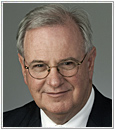By GARY A. WARNER/Oregon Capital Bureau
The Oregon Legislature’s most powerful panel approved a plan to use federal funds to buy $105 million of personal protective equipment, despite objections from over half of the state’s 90 lawmakers.
“I feel like I have been beat over the head on this issue over and over and over again,” said Sen. President Peter Courtney, D-Salem, who presided over the Monday session of the Legislature’s Emergency Board.

Courtney chaired the sometimes tense one-hour meeting of the board, a panel of 20 legislative leaders and key lawmakers from both chambers and both parties that can make decisions while the Legislature is not in session.
The board approved a plan to purchase $105 million in equipment to distribute to counties and cities.
The approval came despite a letter signed by 47 of the Legislature’s 90 lawmakers calling for the money to go directly to local governments to spend on their COVID-19 priorities instead of having the agenda dictated by the state. Among those signing were at least 18 Democrats.
The letter said that the state has made only $200 million available to local governments through a reimbursement program controlled by the state.
“By keeping a disproportionate amount of the funds, the state has created inadequate resource distribution with significant statewide inequities,” the letter said.
The letter supports an earlier letter from a coalition of 17 civic groups, including the Oregon Business Alliance, Bend Chamber of Commerce, League of Oregon Cities, and the Association of Oregon Counties.
Oregon received about $1.63 billion in coronavirus relief funds. Under the federal directive, some local governments received their allocations directly — about $247 million was sent to Portland, and to Washington and Multnomah counties.
Other local governments were to receive $625 million, with the federal directive saying the money should be allocated to local governments on a per capita basis.
Instead, the Legislature and Gov. Kate Brown have controlled the process. About $200 million was put into a state-run account in which local governments could apply for allocations.
“In short, they are getting short-changed,” said Senate Minority Leader Fred Girod, R-Stayton, a member of the Emergency Board.
While the $105 million expenditure was the official reason for the meeting, the underlying tension was over the opinion of many lawmakers that Brown, House Speaker Tina Kotek, D-Portland and Courtney were rushing spending through the process with little consultation with other lawmakers.
Sen. Betsy Johnson, D-Scappoose, said that the Emergency Board was being “reduced to a rubber stamp for expenditures decided somewhere else” for deals hammered out before they even came to the Emergency Board.
“We are pushing through items we spent a billion dollars on without any testimony or even time for thoughtful analysis,” she said.
Most Republicans and some Democrats said the allocation of federal dollars so far seems tilted in favor of the Portland area.
Rep. Greg Smith, R-Heppner, said he respected the efforts of legislative leaders and wished that they had worked more “arm-in-arm” with local governments. While wishing there was a way to vote yes, Smith said he was receiving strong signals from his Eastern Oregon district that the process had been unfair to local governments east of the Cascades.
“I represent five counties, multiple, multiple cities,” Smith said. “I am representing dozens and dozens of officials who have all expressed to me to vote no today.”

Rep. David Gomberg, D-Lincoln City, said he supported the actions the Emergency Board has taken on the allocation of the coronavirus relief funds, but worried that the committee’s actions have the appearance of favoring the state’s largest city.
“I fear that we may have lost sight of the bigger picture,” Gomberg said. “There has been an undercurrent of concern that the projects we have approved have disproportionately benefited the city of Portland to the expense of other counties and other cities throughout the state.”
Democrats who supported the allocation said the process was the best way to leverage state buying power to help local governments.
“I don’t want to be combative, but I feel like there is a lot of misinformation in what you just said and since it’s a lot, I don’t know where to start,” Kotek told Girod after his remarks.
Rep. Susan McLain, D-Hillsboro, said the rapidly changing pandemic situation meant that plans that made sense in May were not necessarily the best way to go in August.
“We are constantly dealing with a moving target,” she said.
Sen. James Manning, D-Eugene, who signed the letter, said that local governments had to be consulted on decisions. But he said it was hard to fault legislative leaders and the governor who, he said, are dealing with inconsistent federal policies and funding.
“How we got here is a real fiasco,” Manning said, of the response by President Donald Trump and Congress. “We don’t know where this thing is going to land.”
A frustrated Courtney said legislative leaders were doing the best they could with “a monster” — the unprecedented health and financial crisis of COVID-19. Courtney said he would redouble efforts to find a way to get state and local officials to agree on policies. But that is no easy path.
“I’m not God, I don’t have some magic dust,” Courtney said. “I don’t think anything has been done intentionally to hurt counties, to hurt cities.”
In addition to Gomberg, the only other south coast legislator who signed the letter included Rep. Caddie McKeown, D-Coos Bay.
- The Oregon Capital Bureau in Salem is staffed by reporters from EO Media and Pamplin Media Group and provides state government and political news to their newspapers and media around Oregon, including YachatsNews.com


